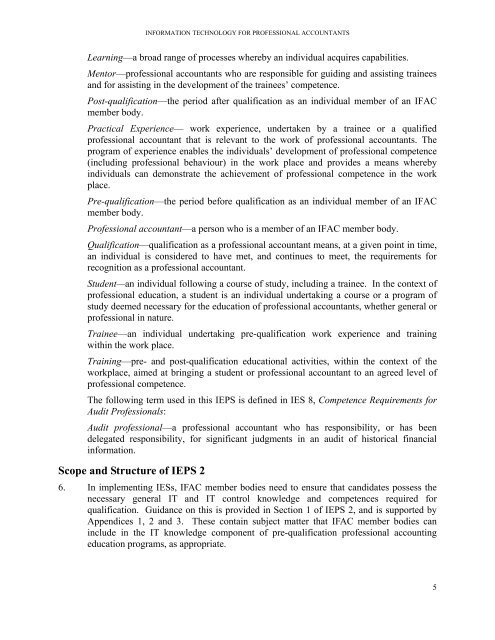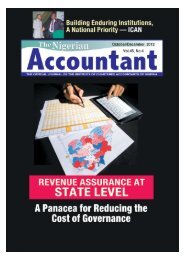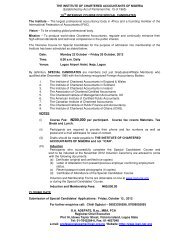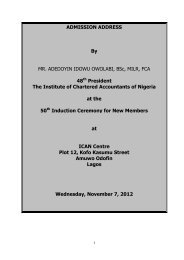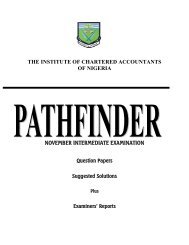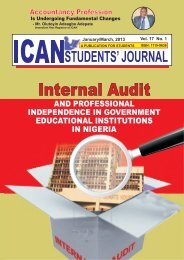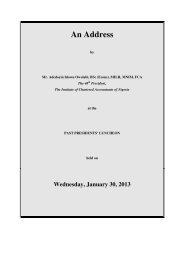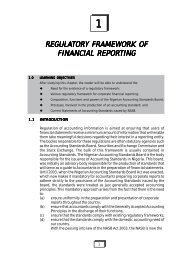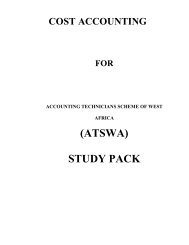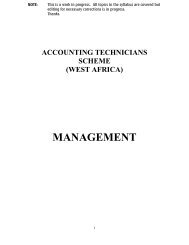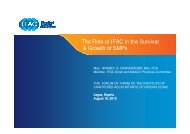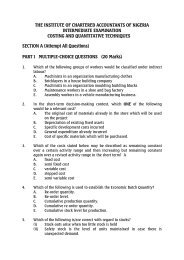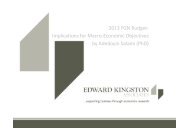Information Technology for Professional Accountants
Information Technology for Professional Accountants
Information Technology for Professional Accountants
- No tags were found...
You also want an ePaper? Increase the reach of your titles
YUMPU automatically turns print PDFs into web optimized ePapers that Google loves.
INFORMATION TECHNOLOGY FOR PROFESSIONAL ACCOUNTANTSLearning—a broad range of processes whereby an individual acquires capabilities.Mentor—professional accountants who are responsible <strong>for</strong> guiding and assisting traineesand <strong>for</strong> assisting in the development of the trainees’ competence.Post-qualification—the period after qualification as an individual member of an IFACmember body.Practical Experience— work experience, undertaken by a trainee or a qualifiedprofessional accountant that is relevant to the work of professional accountants. Theprogram of experience enables the individuals’ development of professional competence(including professional behaviour) in the work place and provides a means wherebyindividuals can demonstrate the achievement of professional competence in the workplace.Pre-qualification—the period be<strong>for</strong>e qualification as an individual member of an IFACmember body.<strong>Professional</strong> accountant—a person who is a member of an IFAC member body.Qualification—qualification as a professional accountant means, at a given point in time,an individual is considered to have met, and continues to meet, the requirements <strong>for</strong>recognition as a professional accountant.Student—an individual following a course of study, including a trainee. In the context ofprofessional education, a student is an individual undertaking a course or a program ofstudy deemed necessary <strong>for</strong> the education of professional accountants, whether general orprofessional in nature.Trainee—an individual undertaking pre-qualification work experience and trainingwithin the work place.Training—pre- and post-qualification educational activities, within the context of theworkplace, aimed at bringing a student or professional accountant to an agreed level ofprofessional competence.The following term used in this IEPS is defined in IES 8, Competence Requirements <strong>for</strong>Audit <strong>Professional</strong>s:Audit professional—a professional accountant who has responsibility, or has beendelegated responsibility, <strong>for</strong> significant judgments in an audit of historical financialin<strong>for</strong>mation.Scope and Structure of IEPS 26. In implementing IESs, IFAC member bodies need to ensure that candidates possess thenecessary general IT and IT control knowledge and competences required <strong>for</strong>qualification. Guidance on this is provided in Section 1 of IEPS 2, and is supported byAppendices 1, 2 and 3. These contain subject matter that IFAC member bodies caninclude in the IT knowledge component of pre-qualification professional accountingeducation programs, as appropriate.5


